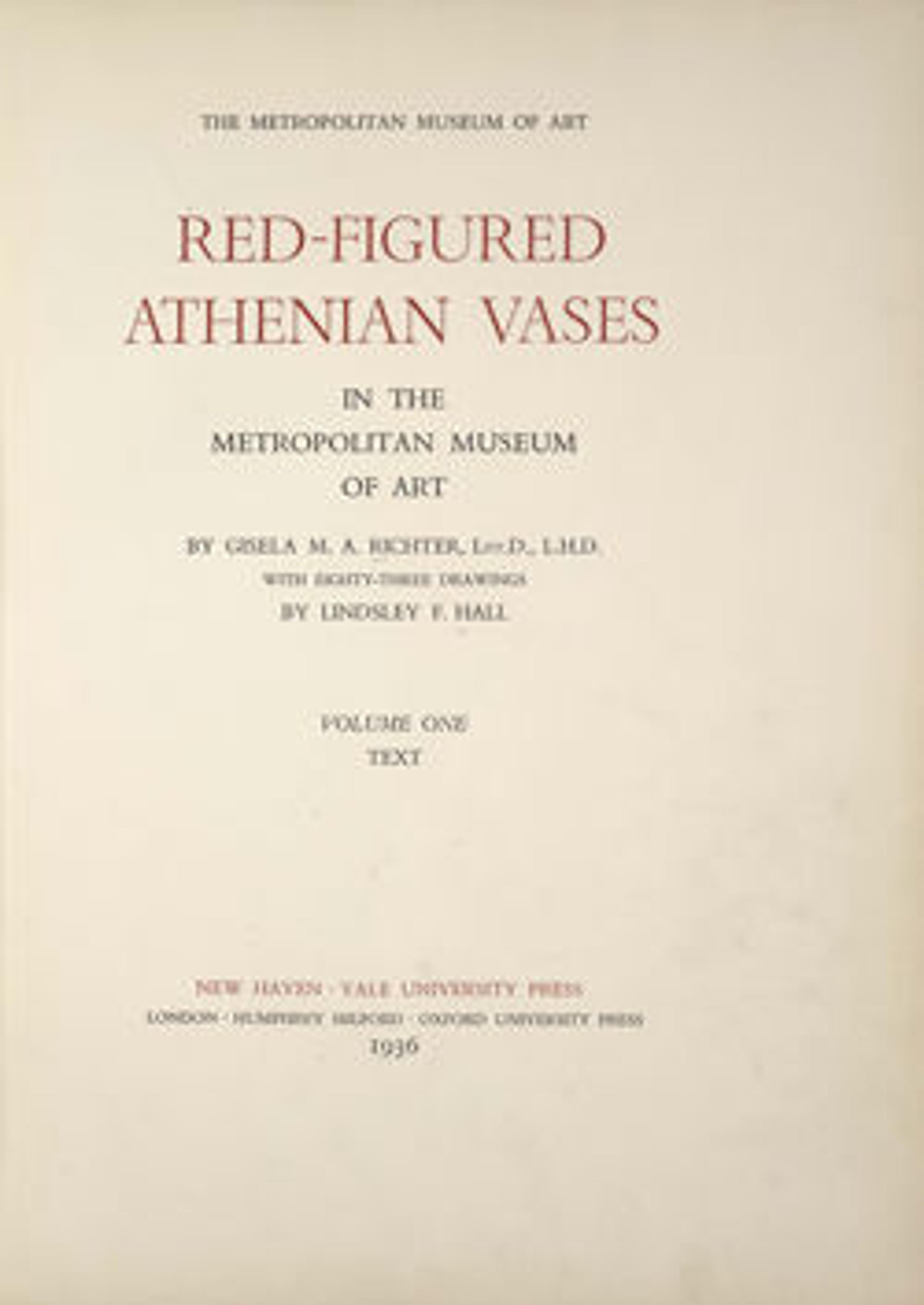Terracotta column-krater (bowl for mixing wine and water)
Obverse, youth with amphora (jar) and kylix (drinking cup)
Reverse, youth with skyphos (deep drinking cup) and fillet (band)
The artistic personality of Myson is particularly apparent in the decoration of the vase. He refers to the past in the black-figure ornament on the obverse of the neck and in the slow motion of his figures. Modern and strikingly effective is his deployment of the revelers against the black-glaze background; their poses and the articulation of the forms appear to fullest advantage.
Reverse, youth with skyphos (deep drinking cup) and fillet (band)
The artistic personality of Myson is particularly apparent in the decoration of the vase. He refers to the past in the black-figure ornament on the obverse of the neck and in the slow motion of his figures. Modern and strikingly effective is his deployment of the revelers against the black-glaze background; their poses and the articulation of the forms appear to fullest advantage.
Artwork Details
- Title: Terracotta column-krater (bowl for mixing wine and water)
- Artist: Attributed to Myson
- Period: Classical
- Date: ca. 480 BCE
- Culture: Greek, Attic
- Medium: Terracotta; red-figure
- Dimensions: H. 15 1/8 in. (38.4 cm)
diameter of mouth 12 1/16 in. (30.6 cm) - Classification: Vases
- Credit Line: Rogers Fund, 1921
- Object Number: 21.88.82
- Curatorial Department: Greek and Roman Art
More Artwork
Research Resources
The Met provides unparalleled resources for research and welcomes an international community of students and scholars. The Met's Open Access API is where creators and researchers can connect to the The Met collection. Open Access data and public domain images are available for unrestricted commercial and noncommercial use without permission or fee.
To request images under copyright and other restrictions, please use this Image Request form.
Feedback
We continue to research and examine historical and cultural context for objects in The Met collection. If you have comments or questions about this object record, please contact us using the form below. The Museum looks forward to receiving your comments.
